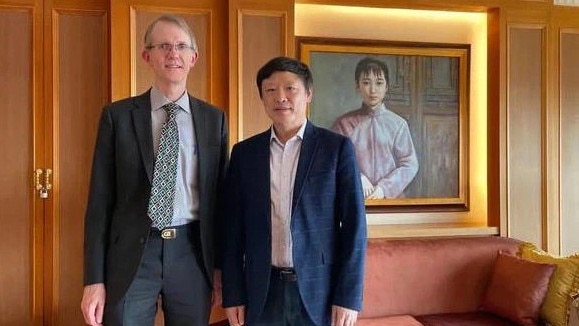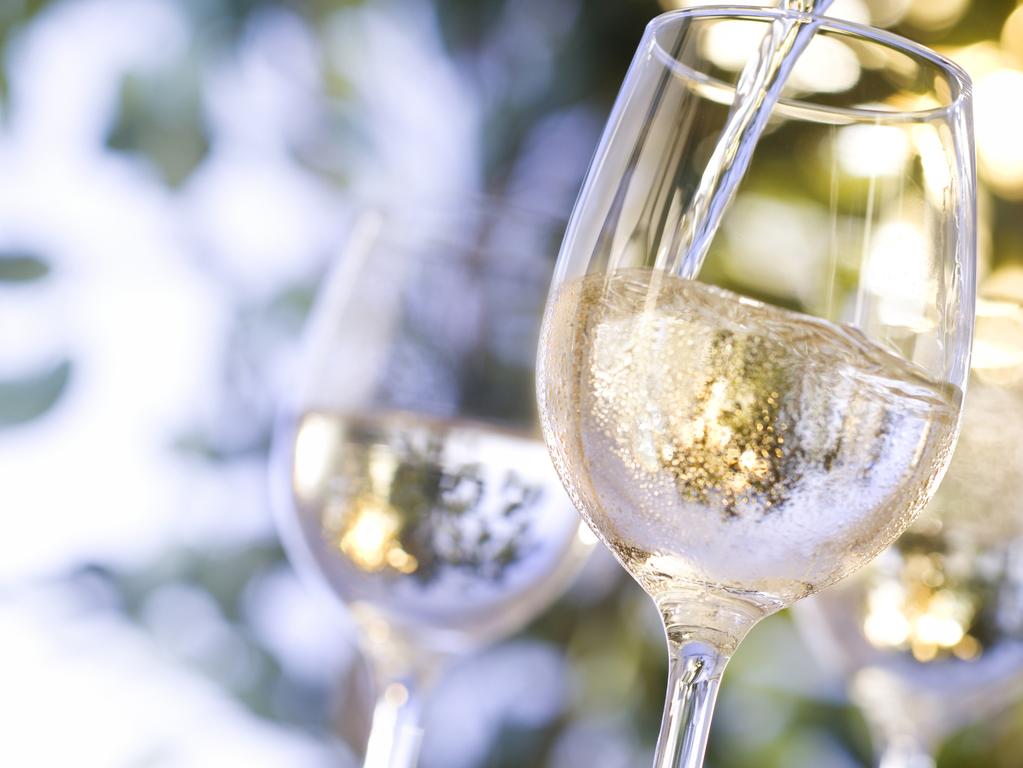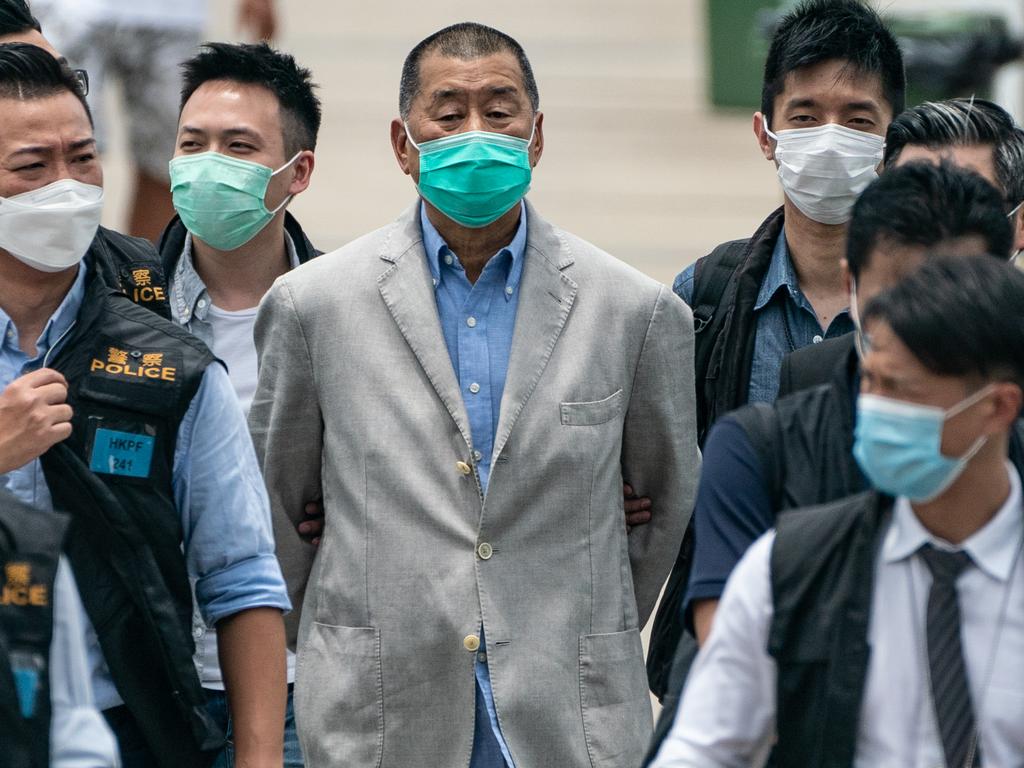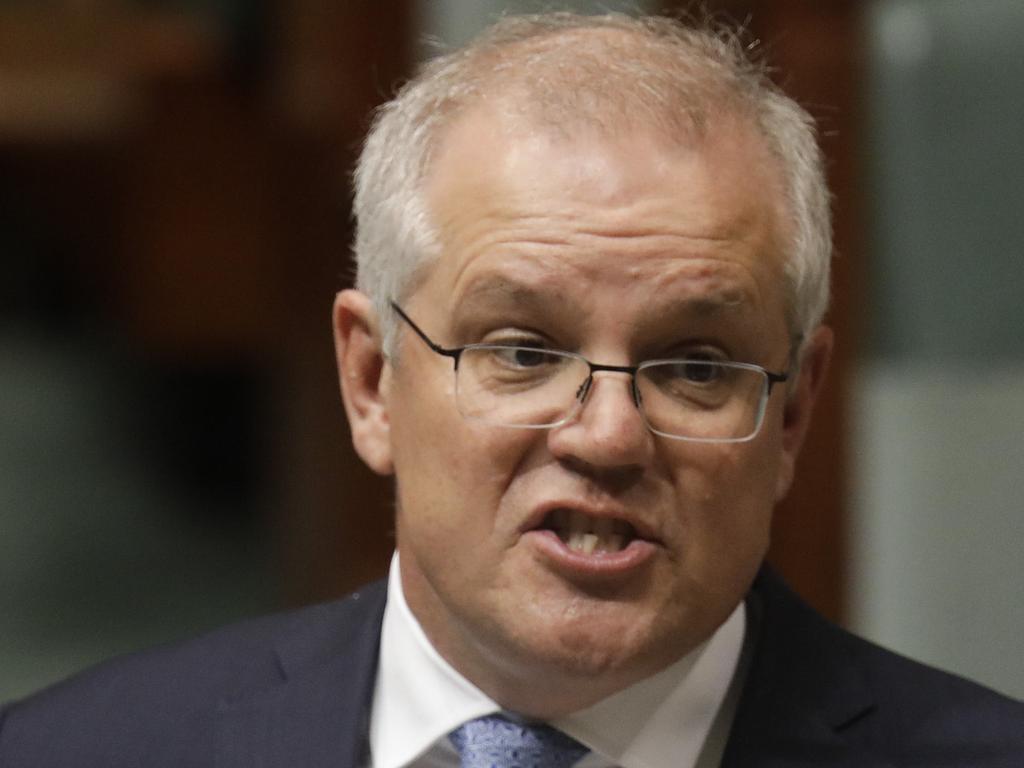Australia is ‘most unfriendly country besides the United States’: Global Times editor Hu Xijin
Communist Party editor boasts of telling Australia’s ambassador that Canberra is ‘the most unfriendly besides the US’.

The editor-in-chief of a Chinese Communist Party tabloid has boasted of telling Australia’s ambassador in Beijing at a private lunch that Canberra was “the most unfriendly country besides the United States”.
Hu Xijin, editor of the state-run Global Times, dined with Graham Fletcher on Wednesday, and later posted details ostensibly of their conversation on Weibo, a Chinese social media platform where he has 24 million followers.
Mr Hu was invited to meet Australia’s most senior diplomat in Beijing one day before China levied another 6 per cent tariff on Australian wine producers — in addition to 200 per cent levies introduced on $1.3bn of exports in November.
The additional trade restrictions — on producers including Treasury Wine Estates, which makes Penfolds and Wolf Blass — are the third measure China has introduced on exports from Australia this week, after new imposts on timber and meat.
The meeting between Mr Fletcher and Mr Hu, one of the world’s most-outspoken critics of Australia, at least demonstrates a willingness to talk, something that has not occurred at a ministerial level for eight months as China responds to perceived grievances by disrupting exports worth more than $20bn a year.
A Department of Foreign Affairs and Trade spokesman said Mr Fletcher “set out Australia’s clear policies in relation to China and on the US alliance”.
“The meeting took place outside the embassy and was part of a wider set of engagements with Chinese media outlets to ensure Australia’s views are conveyed directly,” he said.
“Australian officials must engage with arms of the Chinese government … to project Australia’s national interest-based positions.
“Australia rejects the inaccurate and inflammatory coverage of Australia by the Global Times.”
According to Mr Hu’s account, he told Mr Fletcher: “In the eyes of the Chinese, Australia is currently the most unfriendly country to China besides the United States.”
Hu’s newspaper has become the Morrison government’s loudest foreign affairs critic, describing Australia as a “lackey”, a “US running dog” and a “giant kangaroo that serves as a dog of the US”.
The Global Times has taken numerous controversial positions, urging police in Hong Kong to shoot protesters and describing people in mass detention camps in Xinjiang as terrorists.
Mr Hu, according to his comments on Weibo, told Mr Fletcher he was particularly aggrieved by Australia’s refusal to engage with Huawei for the construction of the 5G network – the Chinese telecommunications company was black-listed by the Turnbull government in August 2018, a ban repeated in Britain and other countries since — and the new foreign interference laws.
“On the South China Sea issue, it has jumped higher as an extra-regional country than an intra-regional country,” Mr Hu said he told his lunch companion.
The trade row between Beijing and Canberra has escalated in the past month.
Trade Minister Simon Birmingham is considering whether to take China to the World Trade Organisation, saying it appears the restrictions are inconsistent with a free-trade agreement signed in 2015. “After a reasonable start in bilateral engagement, in recent years the Chinese government’s lack of engagement has prevented the use of these structures,” Senator Birmingham said on Wednesday.
The Australian has reported that the Australian coal flotilla stuck off the Chinese coast has swollen to more than 80 ships carrying cargo worth more than $1.1bn, as a go-slow by Chinese officials crunches the nation’s second biggest export industry.
The Chinese embassy in Australia denied Senator Birmingham’s claims, and instead accused Canberra of launching anti-dumping and anti-subsidy investigations which “undermined Chinese companies’ interests and brought negative impact on economic and trade co-operation”.
Despite the new tariffs on wine, Mr Fletcher’s meeting with Hu did result in a mild softening of the Global Times’ editorial line on Canberra the following day.
“What’s surprising is that China and Australia have seemingly fallen afoul of each other for no reason at all,” the newspaper said in its Thursday editorial.
“There are enough reasons and resources for the two countries to maintain a friendly and cooperative relationship for a long time. 2020 is almost over.
“Looking to 2021, China-Australia relations need to improve.”
While Mr Fletcher has not commented on Mr Hu’s recollection of the exchange, the Global Times editor said the diplomat told him Australia was doing what was necessary to safeguard its interests. “He asked me to note that Australia’s attitude on many issues related to China is different from that of the United States.,” Mr Hu wrote on Weibo.
“He emphasised that Australia hopes to improve relations with China. At the same time, he also said that Australia is an ally of the United States and this cannot be changed.
“I am afraid Australia needs to really change its attitude towards China and make adjustments in its actions, instead of helping the United States bite China while making a cheap statement of ‘take no sides’. Otherwise, I predict that China-Australia relations will hardly pick up, and Australia will continue to pay the price for its unreasonable China policy.”








To join the conversation, please log in. Don't have an account? Register
Join the conversation, you are commenting as Logout